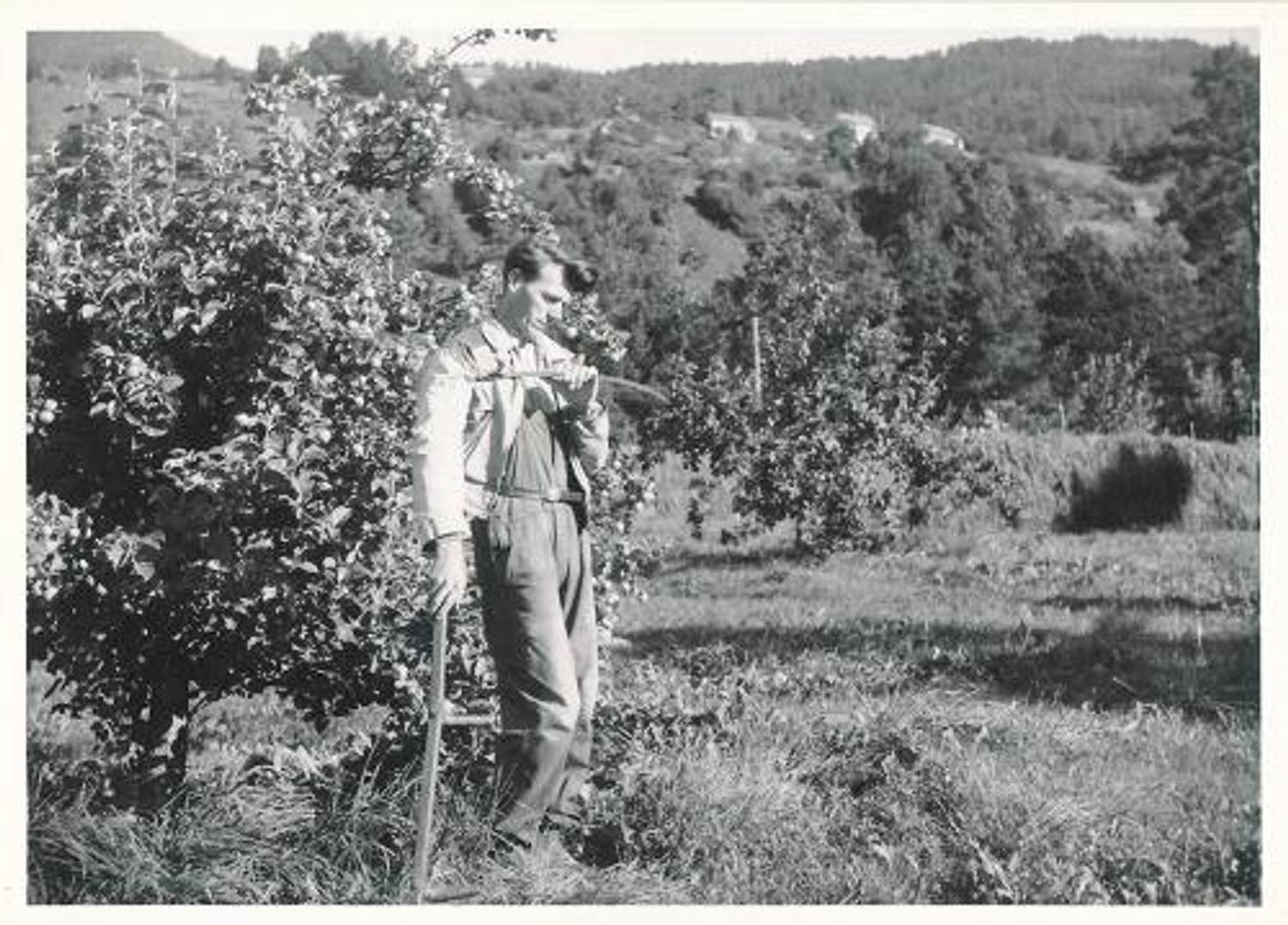"I read and read and live in books and live off them, without them I’d go to pieces." Olav H. Hauge Dagbok Band I, 1927
The title of the seminar is taken from the title of a talk by Joan Didion. She had stolen it from the title of a text by George Orwell. She writes: "I write entirely to find out what I’m thinking, what I’m looking at, what I see and what it means. What I want and what I fear."
The poet Olav H. Hauge (1908-1994) was born in Ulvik in Hardanger, on the farm Hakestad where he lived all his life. He worked as a farmer and gardener on his own orchard. He taught himself several languages, was internationally oriented and translated among others Stéphane Mallarmé, Arthur Rimbaud, Friedrich Hölderlin, Paul Celan and Bertolt Brecht to Norwegian. He wrote poems, aphorisms and letters as well as an extensive nearly four thousand-page diary, Dagbok 1924-1994, which was found and published posthumously. It contains reflections on work and life: the literature he read, on the often hard labour at the farm, the struggle with writing and finding time for it.
Bojana Kunst writes in her latest book Artist at Work - Proximity of Art and Capitalism (Zero Books, 2015) about the economic and social conditions of the artist's work. She writes about how the artists often do more and more for less and less and risk through it to corrode both their own practices and bodies. She writes about the significance of the artist to do less, when confronted with the demand to do more.
As a disobedient line of argument in the defence of art: ”Doing less could also be understood as a new radical gesture that opens up speculation about the value of artistic life and rather than working towards perfection of work, starts working autunomously for life itself. It is therefore an important aesthetic and ethical attitude for the artist as worker.”
